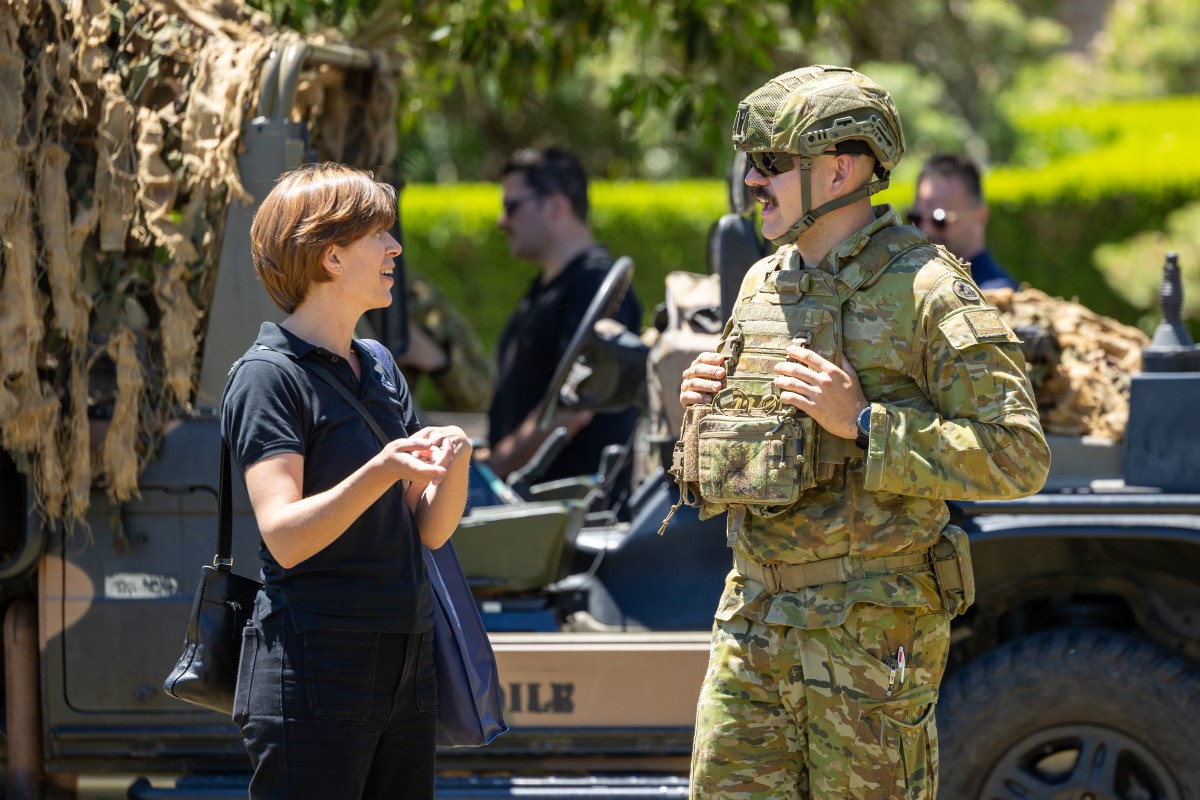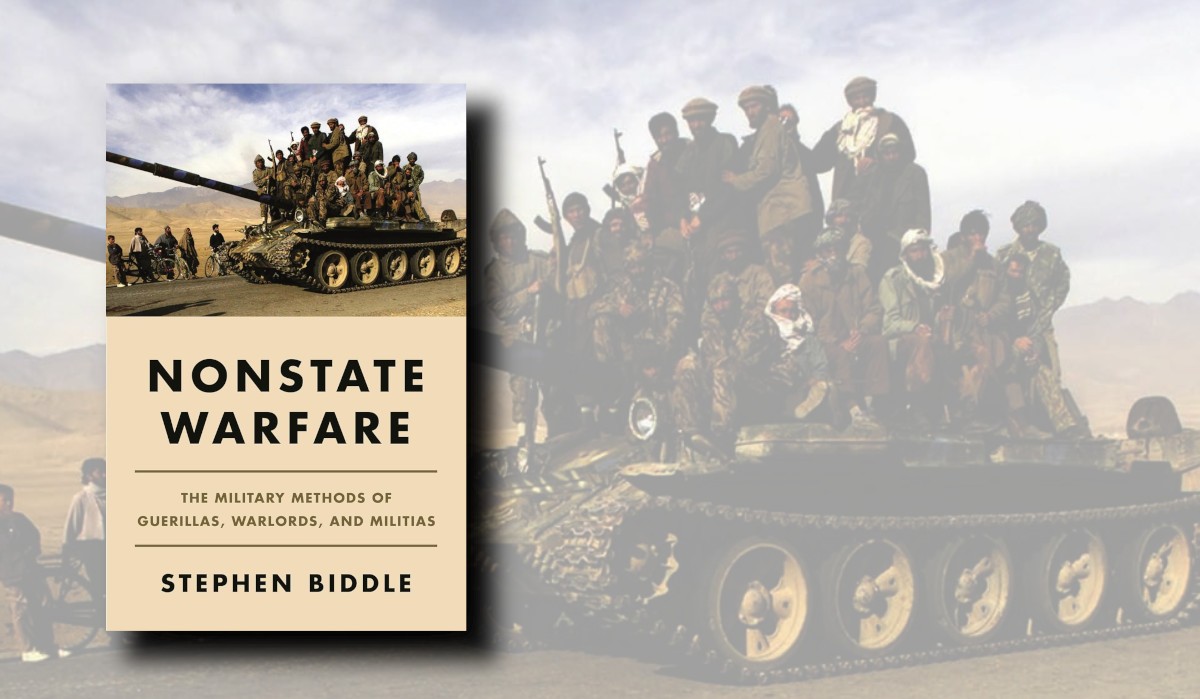“Power is war, the continuation of war by other means… Should one then turn around the formula and say that politics is war pursued by other means? “
MICHEL FOUCAULT, 1976 ‘SOCIETY MUST BE DEFENDED’ [1]
In a recent special report for ASPI, Charles Knight and I drew out lessons from the 2017 Marawi crisis—the seizure of the Southern Philippine city by militants linked to Islamic State and the response by Philippine authorities. Taking a dual approach, the report focuses both on the capability aspects of kinetic ‘hard power’ as well as the strategic use of ‘soft power’, in the form of information operations and a campaign to foster goodwill and meet the humanitarian needs of the population. The hard power findings are further detailed by Dr Knight in a preceding Land Power Forum post. Similarly, this article builds on the insights generated by the report and further develops the concept of soft power to demonstrate its wider relevance in an evolving threat landscape shaped by networked connectivity, and declining adherence to a values-based international order. In particular, it proposes a more precise conceptualisation of soft power that corresponds with the reality of political power relations in an increasingly competitive strategic environment of blurring boundaries between war and peace.
Considering the intersection of new technologies with geostrategic and socio-political change, we frame the Marawi crisis as illustrating a possible strategic play for actors using asymmetric capabilities. This makes it a useful case study when preparing for an era of accelerated warfare —especially anticipating the centrality of ideology and information operations in new types of conflict below the threshold of kinetic war.
Seeing that insurgencies are hardly defeated on the battlefield alone, in particular in an era of increased connectivity and people-/society-centric conflict, Marawi demonstrates the need for a widened battlespace that includes what I call the discursive space; understanding how narratives are constructed through power relations, how they come to constitute social reality and impact on political legitimacy. In this context, the goal of the soft-power approach in Marawi was defined by the Armed Forces of the Philippines (AFP) as legitimising government action and countering violent extremist narratives to prevent the spread of the insurgent ideology.
The Marawi crisis occurred against a backdrop of an increasing politicisation of conflicts; what has been called ‘a radical form of violent politics’. This way, analysts are observing an increasing shift by adversaries towards a synthesis of kinetic and non-kinetic elements to exploit the weaknesses of conventional forces.[2] More specifically, this irregular approach is said to favour ‘the non-kinetic strategically while deploying the kinetic tactically as enabling mechanisms’.[3]
The non-kinetic is understood to encompass ‘soft power’, a term made popular by Joseph Nye to denote a more palatable version of power based on the ideological attractiveness of culture, values and a certain political order.[4] Accordingly, soft power’s prominence in Western foreign policy is manifested in ‘soft power indexes’ as a measuring tool for the success of a nation’s public and cultural diplomacy. The 2017 Foreign Policy White Paper, for instance, has a section dedicated to soft power as an important expression of Australia’s regional leadership, followed in 2018 by a ‘soft power review’ to track progress.[5]
This way, the strategic employment of soft power is seen as an appealing complement to hard power; necessary to make up for the shortfalls of military power as an effective instrument of policy when projecting national power.[6] Without using the term soft power directly, Gideon Rose describes what he calls the ‘Clausewitzian dilemma’: war is made up of two central aspects, a ‘negative, or coercive one…the part about fighting, about beating up the bad guys…[while] the other is positive, …all about politics’.[7]
These dynamics are certainly reflected in the Marawi crisis; my analysis illustrates how the effective use of non-kinetic means is not merely a supporting element in the military campaign but plays a crucial part in achieving a favourable political outcome. I conclude that, to mitigate the fall-outs from the inevitable violence of military power, the most important elements of a successful soft-power campaign are credibility and legitimacy beyond mere persuasion; especially for whole-of-government responses shaped by political imperatives and long-term security and stability concerns. This means going beyond the gloss of reputational concerns of values-based authority is only possible when there’s no gap between rhetoric and actions.
As such, Marawi at first glance confirms the importance of political imperatives in shaping the military campaign, seemingly underscoring the validity of the Clausewitzian dictum that war is the continuation of politics by other means. Yet, when trying to draw out broader lessons from Marawi, nuance is required in employing the soft power concept in the context of our changing threat paradigm. Despite its popular use, also in its refined version as ‘sharp power’,[8] an uncritical application of soft power as a lens to capture present/emerging power relations and strategic options can be problematic.
The reason being that an understanding of soft power as a winsome, feel-good policy tool misses some important facets of the political reality in which soft power is embedded. Such a positive framing underestimates not only the nature of co-optation/persuasion but of political power per se; it neglects what Foucault called the ‘multiplicity of force relations’ and results in a perception of the political as more consensual and free from antagonistic power relations than it really is. To illustrate, in the case of Marawi, easily reportable positive action, a value-focused public relations campaign and its effects on immediate decision-making didn’t automatically translate into improved political relationships in the long term. The political environment surrounding the conflict and its aftermath is too contested for that. This means a ‘successful’ soft power campaign doesn’t automatically lead to the desired political legitimacy.
In this way, soft power is never completely ‘soft’ but needs to be equally seen as a tarnished product of contested power relation—expressed in Foucault’s conceptualisation of ‘politics as war by other means’—even in democratic societies.
Such nuance matters especially when soft power is applied within the so-called hybrid warfare paradigm and equated with political warfare tactics—as a tool of state power to subvert other nations through the strategic use of (dis)information. Following General Campbell’s definition of political warfare as the unrestrained use of ‘grey zone tactics’ to achieve national objectives,[9] it is easy to see how that’s an uncomfortable strategy for liberal democracies. Our previously ‘benign’ soft power then becomes associated with unsavoury authoritarian practices short of war, thereby enhancing the ’Clausewitzian dilemma’ and constraining our scope for action. This becomes especially poignant when fused with perceptions that ‘everything is war and weaponised’ these days; reflected for instance in the mis-appropriation of General Gerasimov’s claim that information operations form a key component of conflict into a ‘new’ doctrine for war through every available means.[10]
A reductionist, dualistic view of hard and soft power stems in part also from a binary view of war and peace as two distinct categories. If we instead accept that ‘peace/war exist on a continuum that is conceptually anchored to the “political”’,[11] it is easier to come to terms with a political reality fraught by antagonistic power relations. Viewing ‘politics as war by other means’ certainly doesn’t mean embracing political warfare, instead it is a recognition that may allow for better strategic positioning vis-à-vis such emerging threats.
[1] Taken from Arnold I. Davidson, “Introduction” to Society Must Be Defended: Lectures at the College of France by Michel Foucault (Picador New York, 1990), xviii.
[2] David H. Ucko and Thomas A. Marks, “Violence in Context: Mapping the Strategies and Operational Art of Irregular Warfare”, Contemporary Security Policy, 39:2, 2018.
[3] Shanthie Mariet D'Souza (ed.), Countering Insurgencies and Violent Extremism in South and South East Asia, (Oxon and New York: Routledge, 2019).
[4] Joseph S. Nye Jr, “Soft Power”, Foreign Policy No. 80, Twentieth Anniversary (Autumn, 1990). 153-171; Joseph S. Nye Jr, “Think Again: Soft Power”, Foreign Policy, February 23, 2006
[5] See for example David Donaldson, “Soft Power Review: Australia Hopes to Boost Its National Image”, The Mandarin, August 18, 2018
[6] Colin S Gray, “Hard Power and Soft Power: The Utility of Military Force as an Instrument of Policy in the 21st Century”, (Strategic Studies Institute, 2011).
[7] Quoted in Gavin Mount, “Hybrid Peace/War” in Hybridity on the Ground in Peacebuilding and Development: Critical Conversations, ed. by Joanne Wallis, Lia Kent, Miranda Forsyth, Sinclair Dinnen and Srinjoy Bose, (ANU Press, The Australian National University, Canberra, Australia 2018), 211
[8] Joseph S Nye Jr, “Get Smart: Combining Hard and Soft Power”, Foreign Affairs No. 88 (4) 2009, 160-163,
[9] Brendan Nicholson, “ADF Chief: West Faces a New Threat From ‘Political Warfare’”, ASPI Strategist, June 14, 2019
[10] Mark Galeotti, “I’m Sorry for Creating the Gerasimov Doctrine”, Foreign Policy, March 5, 2108.
[11] Gavin Mount, “Hybrid Peace/War” in Hybridity on the Ground in Peacebuilding and Development: Critical Conversations, ed. by Joanne Wallis, Lia Kent, Miranda Forsyth, Sinclair Dinnen and Srinjoy Bose, (ANU Press, The Australian National University, Canberra, Australia 2018),




